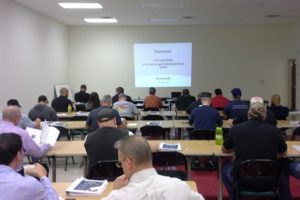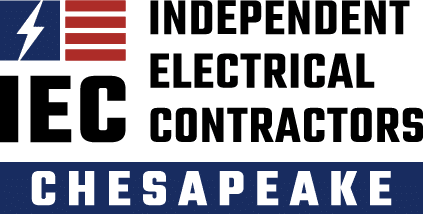
- This event has passed.
Project Management for Electrical Contractors & Low Voltage Contractors
June 7, 2021 @ 5:00 pm - 9:00 pm
A weekly, 8-week, 32-hour, live, video class
April 12 – June 7, 5:00 – 9:00 PM EST (No class May 31)
This program is intended to be an intensive and comprehensive approach to gaining, increasing and/or refining skills critical to executing the duties of a project manager.
Intended audience: Project Managers in electrical construction and low voltage construction. Good project management is good project management…only the size, scale and examples of projects change. At the end of the day, we are managing projects…whether it’s a commercial official building with a 2000A service, or whether it’s a low voltage project with lots of drops, or a systems integration project on the plant floor, we’re managing dollars, hours, productivity, quality, safety…and the customer, be it the end-user plant manager, or the general contractor. The job is the same, just the examples change.
Cost
- Early Registration: $1080.00
- Non Member Standard: $1200.00
- Members receive a 25% discount
Cancellation deadline is 15 business days prior to seminar. All cancellations received after deadline and/or no– shows will be billed and/or are non-refundable. IEC Chesapeake A&T has the right to cancel class if less than 15 students register
REGISTER
Class 1: The 21st Century Project Manager
Construction is a very mature industry, and has a lot of antiquated practices. That includes much of what project managers are taught. This I now the end of the first quarter of the 21st century, and it’s about time for PMs to learn what their job looks like in this century. It’s time to kill all of the sacred cows, and learn where and how PMs really add value to their projects and their firms. We’ll do that in this session.
Class 2: Financial Essentials for Project Managers
PM must…absolutely must, understand the basics of finance for their companies. They must understand the power that they have, the levers that they must pull, and how to positively impact their firm’s profitability. It’s about a lot more than the job cost statement. Usually more than 80% of a project’s cost is in variable costs…all of which are controlled by the PM. In this session you will accelerate yourself along the financial learning curve.
Class 3: The Project Manager and the Contract
The contract is the rulebook for the game, yet too often the PM actually knows little about the contract, and allows the customer to use the contract as a weapon to beat them about the head. Contracts, when negotiated carefully, and executed expertly are the PM’s best friend, without coming across as being a jobsite attorney or irritating the customer. Here you’ll learn the fundamentals of using the contract as a management tool.
Class 4: Managing Field Labor
Too often the PM essentially leaves the responsibility for field labor productivity in the hands of the field supervisor. That’s unacceptable. Yes, the field supervisor is capable (when well trained) and is responsible for day-to-day field labor productivity, but ultimately the PM is responsible for total project performance. That said, what can the PM do to help to manage field labor positively and productively? In this session we’ll detail just how the PM can get much better at this.
Class 5: Change Orders
Change orders, the bane of every project, yet still some PMs think they make money with changes. In this session you’ll learn the true costs of change orders, and how to price, negotiate and sell them properly. Learn how to really use the contract to negotiate your change order position, how to capture all of your costs, and how to convincingly sell your customer that these are costs created by him or her, and not your responsibility in any way. Oh, and also learn how to stay out of jail by not committing fraud.
Class 6: Cash Flow
The nature of our industry is that subcontractors are upside down from a cash position until retention is paid. I know, I know…you play all the games…you front-load, you overbill…and it still doesn’t work. You let the customer hold too much of your money for too long, and that is unacceptable as a PM. In this session we’ll show you a completely different approach that actually works, gets you paid faster, and minimizes your risk.
Class 7: Making Accurate Projections
The second reason I’ll fire a PM is when I can’t teach them how to make accurate projections on their job. (The first is if you don’t support the craftsman in the field). If I can’t teach my PMs how to properly forecast their costs and profits on jobs, I don’t need them. I can just build the job with craftsmen and foreman, have project administrators push the paper, and accounting keep score. No, I need my PMs to be Nostradamus and tell me what’s coming…at all times. Financial surprises will get you fired. Here we’ll show you how to gain expertise and accuracy.
Class 8: Project Closeout
We’re an industry that has a problem slamming the door shut, taking our profits and moving on. Instead we bleed our way out of the job. Not me! In this session you’ll learn a successful 14-step process on how to get out of dodge…with your shirt on…and while leaving the customer satisfied.
Instructor:
Kirk Alter has more that 30 years experience as a contractor and educator in the electrical and mechanical industries. He has worked his way through the industry as a Foreman, Superintendent, Project Manager, Estimator, Operations Manager, and Vice President of a $120M firm. Since 1995 Kirk has developed University level Undergraduate and Continuing Education Programs for electrical and mechanical contractors. Kirk has provided instruction for IEC chapters nationwide, ABC, and Purdue University.













